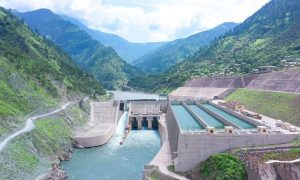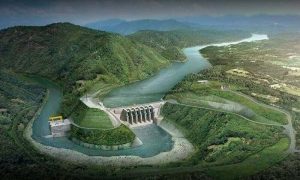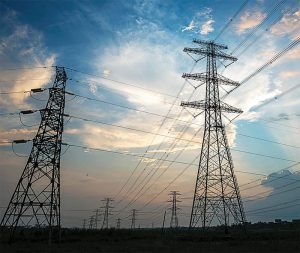Engineering Post Report
Infrastructure development results in the socio-economic development of the country and also acts as one of the indicators of the annual economic growth. When transport networks are expanded, they create possibilities and benefit for the national economy and society at large with positive consequences including increased employment, market accessibility and investment. On the other hand, inadequate transport networks can result in reduced opportunities as well as lower quality of life at a huge cost to the national economy.
Given its advantageous geographic location, Pakistan has the potential to grow its economy through transit trade. Being part of the China-Pakistan Economic Corridor (CPEC), Central Asia regional Economic Cooperation (CAREC) and Khyber Pass Economic Corridor (KPEC) has tremendous potential for .revenue generation through road and rail connectivity. The Federal Government along with the provincial stakeholders was making efforts to invest in the road and rail connectivity throughout the country and accordingly working on various policies and plans to facilitate the transit trade thus boosting the economy of the country.
Following the approval of the National Transport Policy 2018, as an overarching /guiding document for helping ,planning and managing (maintaining/operating) the transport structure, in alignment with the Vision 2025. The document sets the policy standards for each sub-sector and mode of transportation. Transportation system in Pakistan quite obviously needs modernization. The National Transport Master Plan as such was in the final stages of approval and many actions under the policy and the plan were already being adopted and implemented at the appropriate levels, according to the information available from the official sources concerned. .
In recent years the work in the transport infrastructure projects was carried out in the districts of the Southern Punjab, Southern Khyber Pakhtunkhwa and Southern Balochistan based on equitable regional development of the poor districts especially in the transport sector with the Federal Government funding. The road projects under Southern Balochistan development package connecting the Iranian border with the national network was approved and started. The Federal Government also announced the implementation of the Dera Ismail Khan Package in 2022-23.
The CPEC projects were re-initiated/started with full swing and the negotiations with the Chinese side especially regarding the project of Main Line (ML-1) and Karachi Circular Railway were restarted which was indeed a welcome breakthrough.
Pakistan was hit with the flash floods in July 2022 and major roads and rail structure was badly damaged. With the help ,cooperation and assistance of the Donor agencies World Bank , Asian Development Bank and others, major road rehabilitation projects in Sindh, Khyber Pakhtunkhwa (KP) and Balochistan were approved and initiated under the 4RF programme,4R Framework outlines programmatic priorities, policy framework, institutional arrangements, financial strategy, and implementation plans for resilient , recovery ,rehabilitation and reconstruction. The Public Sector Development Programme (PSDP) of the Federal Government for financial year 2022-23 provided an outlay of Rs 190.244 billion under the Transport sector. Against this, an expenditure of Rs 137.804 billion was reported to have been incurred by end June 2023 giving an overall utilization of 72.4 percent.. Owing to financial constraints, only 75 percent of the funds allocated were authorized and released for the projects implementation to the executing agencies. Many Road sector projects under various Federal Ministries were ongoing, therefore, an amount of Rs 151.25 billion was originally allocated towards the road sector, the sources pointedly stated.








